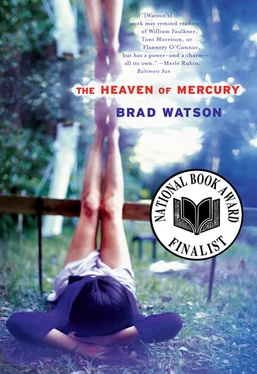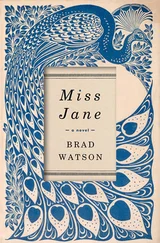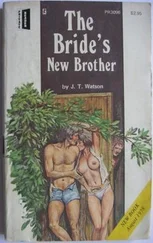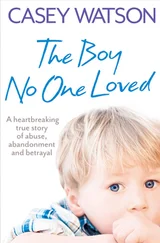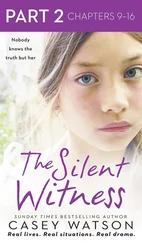Like the rest of the country, small towns and small cities in the South are being overrun with shopping malls, strip malls, Wal-Marts, Kmarts, and new supermarkets. The family-run hardware and lumber stores struggle or are forced out of business by Home Depot and Lowes. Restaurants fail often because people would rather eat at the chains, such as Western Sizzlin’, Applebee’s, Pizza Hut, or McDonalds.
In Meridian, many of the family cleaning businesses, paint stores, clothing stores, barber shops, lumber yards, scrap yards, bakeries, and specialty shops survive. The plumbers, builders, Peavey Electronics. I believe the newspaper, The Meridian Star , is still privately owned, though I may be mistaken. There has been a largely successful effort to revive the historic vaudeville theater downtown, though the little movie theaters (and the monumental Temple Theater, now used for special events) have given way to the chains around the downtown’s perimeter. The churches thrive, of course; the South is still largely a region that respects and practices its religion. Meridian, for one, is not without an eclectic representation, with all manner of Protestant churches, an old and respected Catholic church, and a long-established synagogue that survived a Klan bombing in 1968; there may even be a mosque there now, for all I know. I moved years ago.
One thing that’s changed, obviously, is race relations. How did that affect your portrayal of the book’s African American characters, Creasie and Frank, and their relation to their white employers?
It didn’t. 1950 is 1950, and the changes that have come since then have no bearing on the way things were then. I tried to write honestly about it. It was more difficult and risky, of course, to write from Creasie’s point of view, to write about her and Frank from their perspective. I did the best I could, as any fiction writer would, to put myself in their place when I was writing about them. If 1950 is 1950, human beings are human beings; fundamentally, we are all alike in love, loss, disappointment, greed, desire, sympathy, and so on. Of course Creasie, like the character Birdie, is modeled after a person I knew, whereas Frank was entirely invented. So it was actually a little more difficult to write about Creasie, since I had to allow her character to go beyond or transcend the limited knowledge I had about the woman who inspired her.
Race relations are of course much better in the South these days, as they are in most of the country, but like elsewhere they’re still far from perfect. There’s a residual racism that lingers in this country, and small to mid-sized Southern towns and cities are no exception to that, though it may be more obvious there because racism is more of a tradition in the South. I say that ironically, but it’s true.
The celebrated Southern tendency toward politeness has come to include racism; that is, it is there but it is not spoken of, mostly.
Faulkner’s great novel Absalom, Absalom! famously ends with Quentin Compson in a cold dorm room at Harvard protesting to his roommate, “I don’t hate the South! I don’t hate it! I don’t hate it!” You also left the deep South for Harvard — to teach there, after your first collection of stories, Last Days of the Dog-Men, was published. What were your own feelings about the South, looking back at it from Cambridge? Did you also feel you had to defend it?
Occasionally, the need or opportunity arose. Once at a dinner party, someone mentioned hunting, and all eyes swung to me, as the token Southerner who must obviously be the resident expert on such a barbaric topic. Of course, I was, even though I’m not a very good hunter.
I do think living here has given me a broader perspective on my home region. It helps sometimes to get some distance and look back. Mostly, it helps you to understand yourself a little better through seeing your home from a different place. When you go home to visit, you see and hear things you may not have noticed before, cultural tics you took for granted, and it gives you a different perspective on yourself. That’s always good. I go home, and for the first few days I’m chafed by the Southerners I run into, their accents and manners or lack of them, their taste, their music, their cars, their big manicured lawns, the heat and humidity, the lack of things to do. But then I settle in and I love it again. I go back to New England, to Boston, and I am appalled by their particular nasal accents (some Southern accents are quite nasal, too), their gruff manners, the traffic, the noise, the crowded sidewalks, the parking nightmares, the sense that they really don’t care if you come there or not and would prefer you didn’t. But after a few days I settle in, begin to like the sense of anonymity, that my neighbors don’t know or care what I’m up to, that there are several good coffee shops, pubs, and restaurants to choose from in walking distance, and I begin to pick up on the occasional presence of a certain real Yankee charm. There are things I love and hate about both places, depending on my mood.
We’ve already referred to Faulkner twice in this discussion. Other readers compare you to Flannery O’Connor and Eudora Welty, saying your work is funnier than O’Connor’s but darker than Welty’s. Is the great Southern literary tradition a legacy or a burden? How did it influence your writing? Who would you like most to be compared to?
If those things have been said, I’m flattered, though I’d never consider myself a better writer than either of those two, in any sense. Harder to be funnier (or darker, for that matter) than “A Good Man Is Hard to Find” or “Good Country People” or “The Life You Save May Be Your Own.” If I’m darker than Miss Welty, maybe I’m just more crude. I love the lovely darkness of “The Hitchhikers,” “No Place for You, My Love,” “Death of a Traveling Salesman,” the comic darkness of something like “June Recital.” I really don’t believe I’m worthy of comparison to either writer, but I’d love to believe I’ve learned some things from them, and certainly both writers have influenced my own writing. The way Welty’s stories plumb the mysteries without simplifying them — she leaves the mystery and the wonder intact, doesn’t violate it but enhances it. O’Connor — I just wish I was nearly as smart as she was, as she is in her stories. She and Welty both, what beautiful minds. I have discovered that it is very hard to be funny in the way that O’Connor is funny; I’ve failed at trying a few times. But I do love her black humor, and the merciless way she exposes the truth in her stories. Who could not love the moment when the Misfit says the grandmother would’ve been a good woman if she’d had someone to shoot her every day of her life?
So I don’t think of the tradition as a burden at all. Thank the gods for it. I read Faulkner, O’Connor, Welty, Robert Penn Warren, and listen to their sentences as I read, try to understand their visions of the world on their own terms as well as how they may give language to my experience. I want their language and vision to inform my own, to educate me about what I already know on some level and about what I did not know before reading them. I think Eliot was right in “Tradition and the Individual Talent” there is no way we cannot be a part of and extend a tradition, in some sense, as writers. I’m embarrassed when I see someone obviously straining to be different because they think it’s weak-minded and boring not to be different. Did Cormac McCarthy adore Faulkner? I don’t know him, but it seems to me that he did, and his first novel sounds very much like Faulkner, to me. By “Suttree,” he’d taken what he learned from Faulkner and made something entirely his own, though the influence is still obvious. Now we have writers who sound like McCarthy, and that’s okay with me. They’re learning something new from him.
Читать дальше
